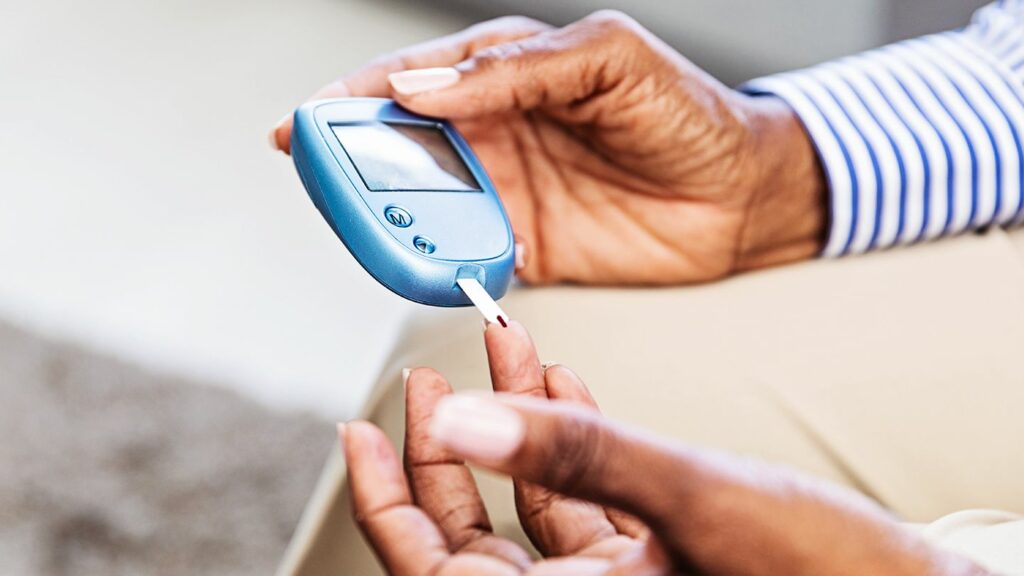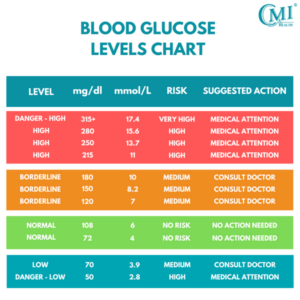Lower blood sugar by incorporating a balanced diet and regular exercise. In addition, staying hydrated and getting enough quality sleep can also help regulate blood sugar levels and promote overall health and well-being.
Introducing healthy lifestyle habits such as eating smaller, frequent meals that are rich in fiber and low in refined sugars and carbohydrates can positively impact blood sugar levels. Engaging in physical activities such as walking, cycling, or yoga for at least 30 minutes a day can aid in lowering blood sugar.
Additionally, consuming foods with low glycemic index values and monitoring portion sizes can contribute to better blood sugar control. Prioritizing self-care by managing stress levels, staying adequately hydrated, and ensuring a good night’s sleep can further support overall blood sugar management. By adopting these habits, individuals can enjoy improved blood sugar regulation and overall better health.
Table of Contents
1. Understanding Blood Sugar And Its Impact
Exploring the basics of blood sugar is crucial in understanding its significance in our overall health. Blood sugar, also known as blood glucose, refers to the amount of sugar (glucose) present in the bloodstream. It serves as the primary source of energy for our body’s cells, tissues, and organs.
Maintaining stable blood sugar levels is essential for proper bodily function. When blood sugar levels are too low or too high, it can lead to various complications and health issues. High blood sugar levels, often associated with conditions like diabetes, can cause symptoms such as frequent thirst, frequent urination, fatigue, and blurred vision. Low blood sugar levels, on the other hand, can result in symptoms like shakiness, dizziness, irritability, and confusion.
Several factors influence blood sugar levels, including diet, physical activity level, stress, and genetics. By adopting a healthy lifestyle, making nutritious food choices, engaging in regular exercise, and managing stress effectively, we can promote stable blood sugar levels and optimize our health.
It is important to be aware of the impact that blood sugar has on our overall well-being and take necessary steps to maintain it within a healthy range. Regular monitoring and seeking medical advice when needed can help prevent complications and ensure a balanced and thriving life.
2. Healthy Eating Habits For Managing Blood Sugar
When it comes to managing blood sugar levels, healthy eating habits play a crucial role. Incorporating a balanced and nutrient-rich diet can help regulate blood sugar levels effectively. Carbohydrates, proteins, and fats are essential macronutrients that play different roles in blood sugar management. Carbohydrates are broken down into glucose, which directly affects blood sugar levels. Therefore, it is important to choose complex carbohydrates such as whole grains, legumes, and vegetables, rather than refined carbohydrates. Proteins can help stabilize blood sugar levels and promote satiety, so incorporating lean sources of protein like poultry, fish, and tofu can be beneficial. Including healthy fats from sources such as nuts, seeds, and avocados can also help manage blood sugar levels.
Portion control and mindful eating are equally important. Paying attention to serving sizes and avoiding overeating can prevent blood sugar spikes. Eating slowly and savoring each bite can enhance the eating experience and promote better digestion. Planning meals and snacks in advance can help maintain a consistent eating pattern and avoid making impulsive food choices. It is also important to listen to your body’s hunger and fullness cues, stopping eating when you feel satisfied rather than stuffed.
3. The Impact Of Exercise On Blood Sugar
Regular exercise has a significant impact on blood sugar levels. Physical activity helps to improve insulin sensitivity, allowing the body to use glucose more effectively. This means that exercise can help lower blood sugar levels and reduce the risk of developing type 2 diabetes.
There are different types of exercises that are suitable for managing blood sugar. Aerobic exercises such as walking, running, cycling, and swimming can help improve cardiovascular health and lower blood sugar levels. Strength training exercises like weightlifting or using resistance bands can also be beneficial as they increase muscle mass, which helps in glucose control.
It is important to develop an exercise routine that works for you. Start with activities that you enjoy and can easily incorporate into your daily routine. Aim for at least 150 minutes of moderate-intensity exercise per week, or 75 minutes of vigorous-intensity exercise if your doctor approves. Consistency is key, so try to make exercise a regular part of your lifestyle to effectively manage blood sugar.
4. Stress Management And Blood Sugar
Understanding the relationship between stress and blood sugar:
Stress can have a significant impact on blood sugar levels. When we experience stress, our body releases hormones like cortisol and adrenaline, which can cause a rise in blood sugar. This response is known as the “fight or flight” response.
Techniques for managing stress and its impact on blood sugar levels:
1. Practice deep breathing exercises, meditation, or yoga to promote relaxation and reduce stress levels. These activities can help lower blood sugar levels.
2. Engage in regular physical exercise. Exercise releases endorphins, which are natural mood enhancers and help reduce stress levels.
3. Get enough sleep. Lack of sleep can contribute to increased stress levels and higher blood sugar.
1. Schedule regular “me time” to focus on activities you enjoy. This can help you relax and reduce stress.
2. Prioritize tasks and set realistic goals to avoid feeling overwhelmed.
3. Connect with friends and family for support and social interaction.
By incorporating these stress management techniques into your daily routine, you can effectively lower blood sugar levels and improve overall well-being.
5. Sleep And Blood Sugar Regulation
Getting enough quality sleep is crucial for regulating blood sugar levels and maintaining overall health. Consistency is key when it comes to establishing a sleep schedule. Try to go to bed and wake up at the same time every day, even on the weekends. This helps regulate your body’s internal clock and promotes a better night’s sleep.
To improve your sleep hygiene, create a relaxing bedtime routine. Avoid stimulating activities such as using electronic devices or engaging in intense exercise close to bedtime. Instead, wind down with activities like reading a book or taking a warm bath.
It’s also important to create a sleep-friendly environment. Keep your bedroom cool, dark, and quiet. Invest in a comfortable mattress and pillows to ensure a good night’s sleep. Consider using blackout curtains, earplugs, or a white noise machine to block out any disturbances.
Lastly, avoid stimulants such as caffeine and nicotine, especially in the evening. These substances can interfere with your ability to fall asleep and stay asleep. Instead, opt for herbal teas or other non-caffeinated beverages.
| Tips for improving sleep hygiene: |
|---|
| Avoid stimulating activities close to bedtime |
| Create a relaxing bedtime routine |
| Make your bedroom cool, dark, and quiet |
| Avoid caffeine and nicotine in the evening |
6. Medications And Blood Sugar Control
Managing blood sugar levels is an important aspect of diabetes management. In addition to maintaining a healthy diet and engaging in regular physical activity, certain medications can help lower blood sugar levels effectively. Understanding the role of insulin and other medications is crucial for selecting the most appropriate treatment plan in consultation with your healthcare provider.
Insulin is a hormone that helps regulate blood sugar levels. For individuals with type 1 diabetes, insulin therapy is essential as their bodies do not produce insulin. There are different types of insulin available, including rapid-acting, short-acting, intermediate-acting, and long-acting insulin.
Alternatively, for individuals with type 2 diabetes, there are several medication options that can be explored. Some commonly prescribed medications include:
| Medication | Description |
| Metformin | A drug that reduces the production of glucose by the liver and improves the body’s sensitivity to insulin. |
| Sulfonylureas | Medications that stimulate the pancreas to produce more insulin. |
| Thiazolidinediones | Drugs that enhance insulin sensitivity in the body’s cells. |
| DPP-4 inhibitors | Medications that help reduce blood sugar levels by preventing the breakdown of incretin hormones. |
| SGLT2 inhibitors | Medications that lower blood sugar levels by reducing glucose reabsorption in the kidneys. |
It is important to work closely with your healthcare provider to find the most suitable treatment plan for managing blood sugar levels. They will assess your specific needs, consider your medical history, and take into account any potential side effects or interactions with other medications before recommending the appropriate medication regimen.
7. Monitoring Blood Sugar Levels
In order to effectively monitor blood sugar levels, there are several different methods that can be used. Establishing a blood sugar monitoring routine is crucial for individuals with diabetes or those who need to manage their blood sugar levels. This routine may include regular fingerstick testing using a blood glucose meter, continuous glucose monitoring (CGM) devices, or even urine tests in some cases. It is important to understand target ranges for blood sugar levels and how to interpret readings. This knowledge allows individuals to track their progress and make necessary adjustments to their lifestyle, diet, or medication as needed. Regular monitoring helps individuals stay proactive in managing their blood sugar levels and can help prevent complications associated with high or low blood sugar.
8. Potential Complications Of High And Low Blood Sugar
High and low blood sugar levels can lead to a range of potential complications that can impact your health. It is essential to understand these risks to prevent any further health issues. Maintaining stable blood sugar levels is crucial to avoid complications. To achieve this, follow these tips:
- Eat a balanced diet with a focus on whole grains, lean proteins, and fruits and vegetables.
- Stay active and engage in regular exercise.
- Monitor your blood sugar levels regularly and keep track of any fluctuations.
- Take prescribed medications and insulin as directed by your healthcare provider.
- Avoid excessive alcohol consumption and smoking.
- Stay hydrated and drink plenty of water throughout the day.
- Learn to recognize the warning signs of high blood sugar (hyperglycemia) and low blood sugar (hypoglycemia).
- Seek immediate medical attention if you experience severe symptoms or if your blood sugar levels are consistently high or low.
By implementing these strategies, you can minimize the risk of complications and maintain stable blood sugar levels for overall better health.
9. Lifestyle Changes For Long-term Blood Sugar Management
When it comes to managing blood sugar levels, making sustainable lifestyle changes is key for long-term success. Incorporating these changes not only helps in controlling blood sugar levels but also promotes overall health and well-being.
One important aspect of creating a sustainable lifestyle is establishing a support network. Surrounding yourself with people who understand and support your journey can provide much-needed encouragement and motivation. Seeking professional guidance from healthcare providers, nutritionists, or diabetes educators can also be invaluable in developing a personalized plan that suits your specific needs and goals.
Setting realistic goals is another crucial step in long-term blood sugar management. Small, achievable targets make the journey more manageable and help to avoid feeling overwhelmed. Celebrating the small victories along the way is essential, as it reinforces positive behavior changes and boosts confidence.

Credit: www.ndtv.com
Frequently Asked Questions For How Lower Blood Sugar
How Can I Lower My Blood Sugar Levels Naturally?
Lowering your blood sugar levels naturally involves making changes to your lifestyle and diet. You can start by increasing your physical activity, eating a balanced diet with fewer carbohydrates, and managing stress levels. It’s also important to stay hydrated, get enough sleep, and monitor your blood sugar levels regularly.
Remember to consult with a healthcare professional for personalized guidance.
What Foods Help Lower Blood Sugar?
Certain foods can help lower blood sugar levels. These include foods high in fiber such as fruits, vegetables, whole grains, and legumes. Foods rich in omega-3 fatty acids, like fatty fish and walnuts, can also be beneficial. Additionally, incorporating foods with a low glycemic index, like lean proteins and healthy fats, can help manage blood sugar levels.
Can Exercise Lower Blood Sugar Levels?
Yes, exercise can help lower blood sugar levels. Physical activity increases insulin sensitivity, allowing your body to use insulin more effectively. It also helps your muscles utilize glucose for energy, which can lower your blood sugar levels. Engaging in aerobic exercises, strength training, and even simple activities like walking can have a positive impact on blood sugar control.
Remember to consult with a healthcare professional before starting any exercise routine.
Conclusion
To effectively lower blood sugar levels, it is crucial to adopt a holistic approach. By making lifestyle changes such as regular exercise, following a balanced diet, and managing stress levels, you can make significant improvements. Additionally, herbal remedies and supplements can provide additional support in reducing blood sugar levels.
Remember, consistency is key in maintaining healthy blood sugar levels and overall well-being. Embrace these strategies and take control of your health starting today.








